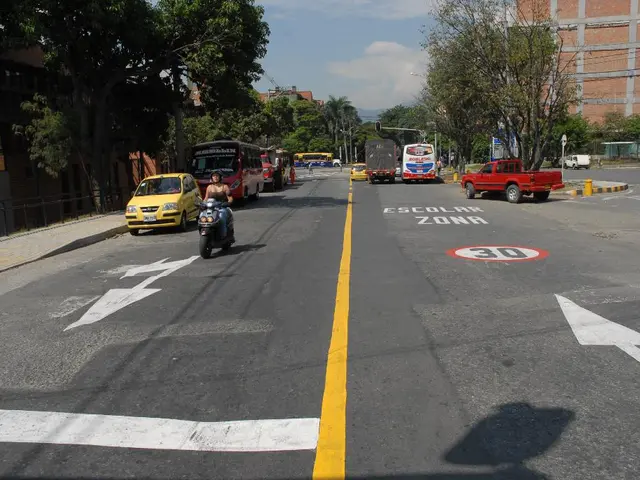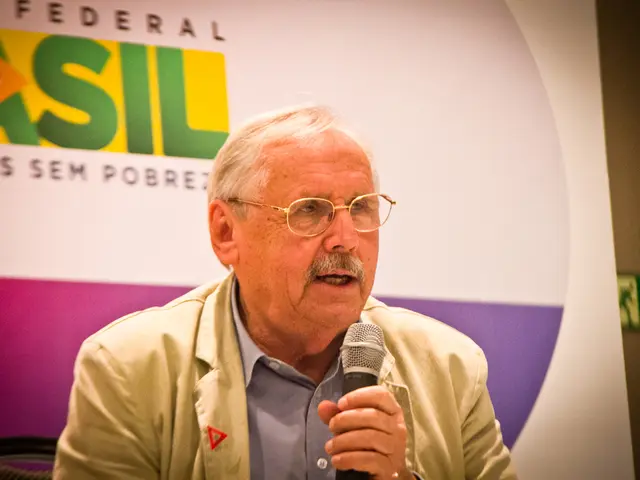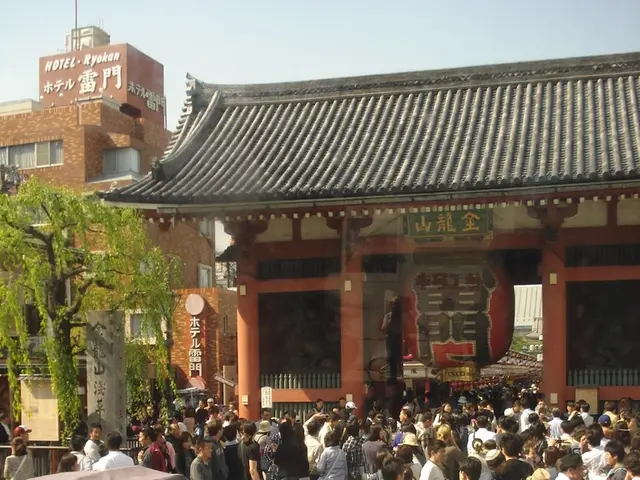L.A. U.S. attorney takes action to counteract California's sanctuary laws.
The U.S. Attorney's Office in Los Angeles is bolstering immigration enforcement within local jails amidst the Trump administration's ongoing efforts to remove immigrants from "sanctuary cities."
Bill Essayli, the top federal prosecutor in Los Angeles, unveiled a new initiative dubbed "Operation Guardian Angel" last week. The program aims to enhance federal immigration enforcement by targeting criminal individuals with deportation histories who have re-entered the United States illegally. This tactic focuses federal resources on county jails and state prisons, areas where sanctuary laws have previously hampered the work of immigration agents.
Essayli asserted that sanctuary jurisdictions would not hinder the safety of American citizens. "Under the Trump Administration, we will not allow sanctuary jurisdictions to obstruct the pursuit of keeping the American People safe," he stated.
However, California officials argue they already collaborate with federal authorities regarding immigrants who have committed crimes. A spokesperson for California Attorney General Rob Bonta countered, "While the Trump Administration may seek to blame California as it grows desperate to deliver on its misguided, inhumane mass deportation agenda, immigration enforcement is and always has been the federal government's job."
Previously, the practice of prosecuting individuals for illegal entry was widespread during the Obama and second Bush administrations but had diminished in recent years. The resumption of this practice could lead to an increase in immigration arrests in the region, experts predict.
Essayli, a former state assembly member and the son of Lebanese immigrants, was appointed last month. He has established a dedicated team of federal officials tasked with identifying jailed immigrants who have been deported. The new effort could result in dozens of charges per week.
The administration has been frustrated with California's policy that prohibits local law enforcement from arresting someone solely for a deportation order or holding someone in jail for extra time to facilitate immigration agent detention. Immigration officials historically relied on local police for assistance in enforcement, but in recent years, California and other states have strengthened protections for immigrants.
In 2018, California passed a law that ended the use of 287(g) agreements, which allowed local jailers to screen suspects for immigration violations. Immigration activists maintained that these agreements eroded trust within the community and punished immigrants with minor infractions.
The Trump administration has been advocating for a revival of such programs across the country as it endeavors to fulfill its promise of mass deportation. "The days of giving criminal illegal aliens a free pass are over," Essayli stated. "While California may be presently disregarding detainers, it cannot ignore federal arrest warrants."
Although there is continued collaboration between state and federal authorities, California prison officials can transfer inmates to immigration custody, with the condition that they provide a written notice. Furthermore, police can notify immigration agents of someone's release if they have certain convictions.
The Trump administration has presented sanctuary cities as more dangerous, with much of its immigration agenda focusing on removing criminals. However, experts argue that the rhetoric does not reflect reality. Charis Kubrin, a criminology professor at UC Irvine, stated, "Immigrants do not commit crime at a higher rate than the native born, and immigration to an area does not cause crime rates to rise."
Essayli's office stated that it aims to file charges and seek arrest warrants so federal agents can take as many defendants as possible into custody from state jails. In 2023 and 2024, federal prosecutors in California's Central District charged a total of 17 individuals with illegal reentry following removal, according to the office. Between January 20 and May 1, the office charged 347 people with illegal reentry. In the first five days of the program that began May 10, 13 people were arrested, which represents a slower rate than in the preceding three months.
The government's ambitious immigration enforcement strategy could face limitations due to capacity issues as the number of prosecutions grows. "At the end of the day they will, they will run into...issues of capacity," said Muzaffar Chishti, a senior fellow at the Migration Policy Institute.
Reporting by Rachel Uranga and Andrea Castillo.
Additional Reading:- Father ripped from family as agents target immigration courts, arresting people after cases dismissed- Authorities arrest over 100 people on Tennessee roads in support of Trump's deportation plan- 205 suspected child sex predators, some from California, arrested in nationwide sweep, feds say
- Operation Guardian Angel, a new initiative by the U.S. Attorney's Office in Los Angeles, targets criminal individuals with deportation histories who have re-entered the United States illegally, focusing on county jails and state prisons.
- Bill Essayli, the top federal prosecutor in Los Angeles, asserts that sanctuary jurisdictions will not hinder the safety of American citizens, despite California officials arguing they already collaborate with federal authorities regarding immigrants who have committed crimes.
- Essayli's office aims to file charges and seek arrest warrants so federal agents can take as many defendants as possible into custody from state jails, which could result in dozens of charges per week.
- California prison officials can transfer inmates to immigration custody, providing a written notice, and police can notify immigration agents of someone's release if they have certain convictions.
- The Trump administration's immigration enforcement strategy could face limitations due to capacity issues as the number of prosecutions grows, according to Muzaffar Chishti, a senior fellow at the Migration Policy Institute.
- Experts argue that the rhetoric surrounding sanctuary cities being more dangerous does not reflect reality, as immigrants do not commit crime at a higher rate than the native-born, and immigration to an area does not cause crime rates to rise.







